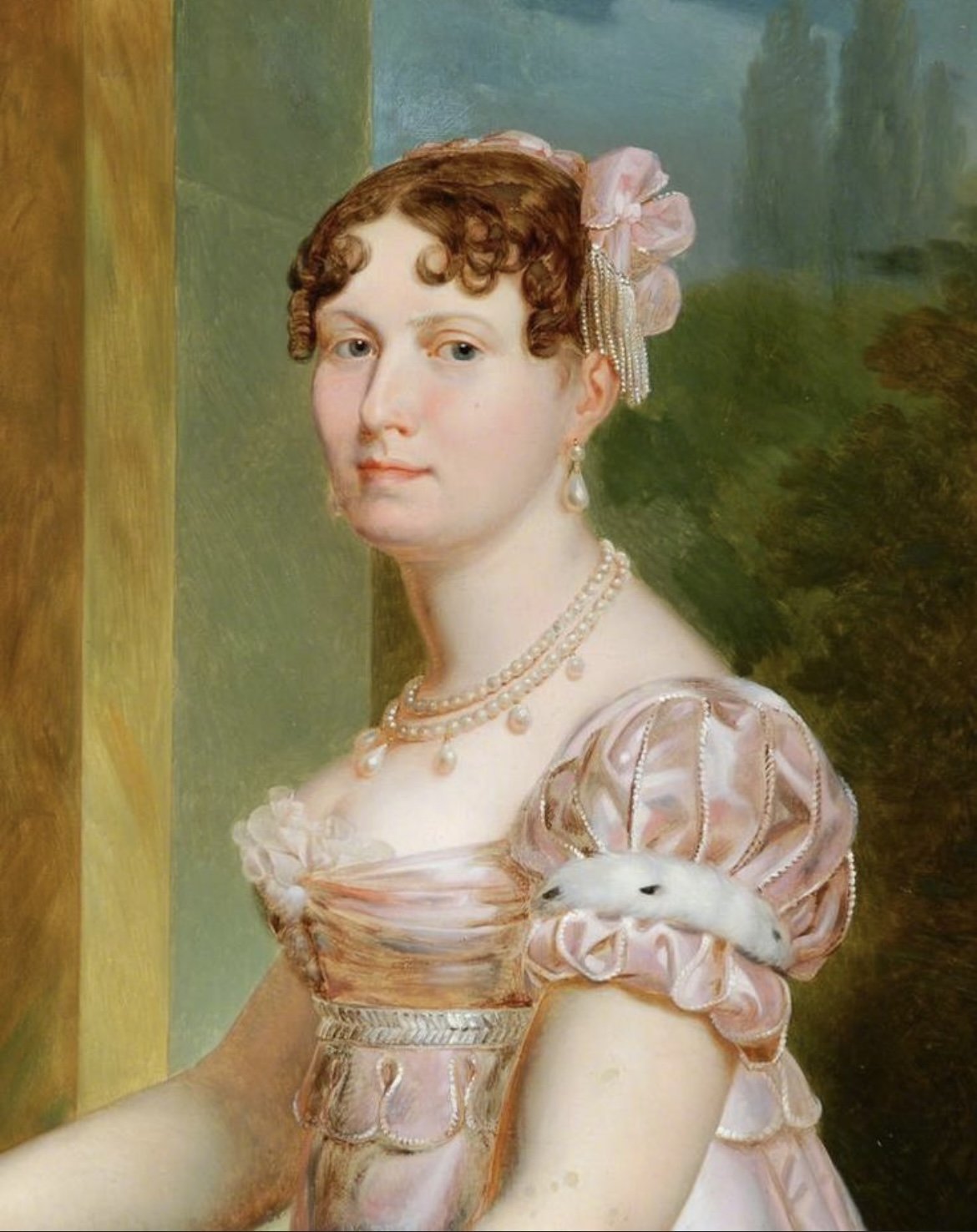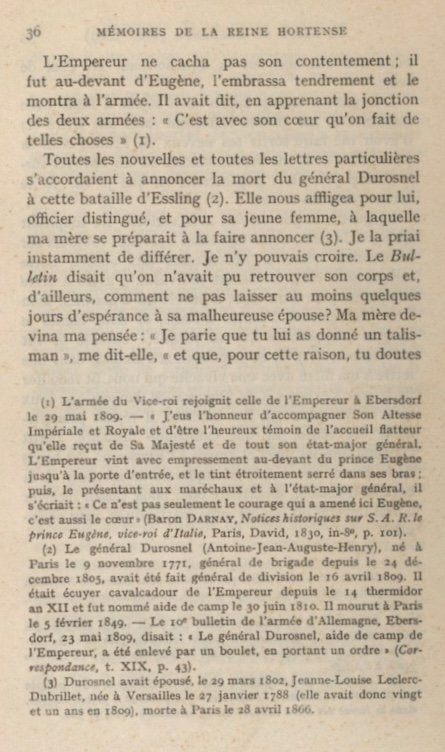Let’s have another look at Hortense’s Memoirs. If you want to read the book it is available for free at the side bar in English and French. Use the widget on the sidebar to translate the text below into pretty much any language.
Hortense defies the orders of Napoleon in various ways but he’s fairly indulgent about it. During yet another war started by the Austrian government, Hortense’s protective stones develop a reputation for being genuinely protective.
Hortense’s memoirs continues:
Vague rumors announced the approach of a new war with Austria. What appeared at first sight to be a minor incident caused us to believe these rumors were based on fact.
Whenever an important reception took place there would always be card-playing after the theatrical performance or the meeting of the Emperor's ministers. We would go upstairs with the Empress to the Emperor's big study, where our tables were set out.
Generally, the Emperor did not play himself, and we and the Empress gave the High Chamberlain the names of the persons he was to invite to play with us.
The persons chosen were generally the principal foreign ambassadors or the high court dignitaries. At the time of which I am now speaking the Emperor said to the Empress with an apparently indifferent air, "Who are your partners this evening?" and without waiting for a reply gave the names of three persons.
He asked us the same question and also chose our partners. It was easy enough for us to guess that this was done in order to avoid having Monsieur de Metternich, the Austrian Ambassador, invited to play with us.
Although he was generally invited at one of our tables, on this occasion he was obliged to play with the ladies in waiting.
Like Madame de Talleyrand, Madame de Metternich also came to see me to ask me to use my influence on behalf of her husband. The latter wished, in order not to make the change in his position too apparent, that I would ask my ladies in waiting not to invite him to play with them.
Since he could not be one of our partners, he preferred not to play at all. I with pleasure complied with Monsieur de Metternich's request. Indeed, I went further and at supper, where we each had our own table and where only the ladies were seated, I took advantage of the fact that the Emperor had not told us either whom we were to invite or whom we were to avoid, and made a point of asking Madame de Metternich to sit at my table the next time there was a reception.
This rather compensated her for what had happened to her husband. Otherwise she ran the risk of being more or less ostracized, for the Emperor's displeasure was contagious and he was not accustomed to see anyone take the part of a person with whom he was displeased. Consequently, when he was walking about during supper and came to my table, he passed by without saying a word when he noticed it was not arranged as he wished. I was not upset about this. Indeed, I rather enjoyed opposing him in this matter as I considered it unfair that Madame de Metternich, who had never had anything to do with politics, should suddenly have people turn their backs on her, instead of crowding around her as they had done a few days before, simply because the Emperor happened to be displeased with her husband.
Too often courtiers seek to win their monarch's favor by exaggerating his attitude. The Emperor suddenly left the court one day without letting anyone know of his intentions. He was in the habit of doing this. He took my mother with him, and she wrote me to join her at Strasbourg and to remain there with her as long as hostilities lasted.
I set out a few days later accompanied by my two children. Before I had reached Luneville I already had news of a victory and as I entered Strasbourg a young page named Oudinot appeared at the door of my carriage and announced another one.
Every day detachments of prisoners marched past under the surveillance of a couple of soldiers. All our troops were at the front, and it frequently happened that when we went out walking beyond Kehl we would find ourselves without any attendants in the midst of the prisoners.
The idea that we might be in danger never occurred to us. I strolled about among them without feeling the least alarm and distributed money, especially to the convoys of the wounded. Marshal Kellermann, who commanded the garrison of Strasbourg, blamed me for taking such risks, especially as I was a member of the imperial family.
But I considered that these men, defeated and unhappy, were not interested in anything except their own misfortunes,
The Queen of Westphalia, who had been obliged to leave Cassel, joined us, as did also the Princess of Baden. Our stay at Strasbourg still further weakened my health, and I allowed myself to be persuaded to try the waters of the little city of Baden, whose picturesque situation and good air might do me good. I did regain a little of my strength there. My children were with me. I was near enough my mother, who had remained at Strasbourg, for me to be able to see her occasionally.
Madame the Baroness de Krudener was at that time at Baden and occasionally came to call on the Princess Stephanie. She talked well, and the stories of her experiences, which she enjoyed telling, were vivid and entertaining.
Since my misfortunes my attitude in society had been listless and dull. I had no strength to indulge in small talk and hardly made even the most commonplace remark to the persons who were introduced to me.
One evening, at the house of the Princess of Baden I let Madame de Krudener keep on talking without paying much attention to what she said, when suddenly my attention was aroused by her description of a young woman who lost someone who was dear to her and gave way to her sorrow.
The close resemblance between the anecdote related by Madame de Krudener and my own feelings at the time of my son's death, as well as a thousand details which she had noticed, made a deep impression on me and made me live over again those sad moments. I was unable to control my emotion and burst into tears. Madame de Krudener sought to console me and from that time on became deeply attached to me.
She often came to see me in the morning. We took long walks together, and her religious views although decidedly unorthodox appeared to me to be, at that time, quite sane and not dangerous.
As she was devoted to the Queen of Prussia, she was pleased to hear my flattering remarks about that ruler based on what my husband, who admired
her greatly, had told me.
Endowed with an exceptionally kind heart, Madame de Krudener sought and found in the contemplation of God and in acts of charity those satisfactions which society so rarely affords.
Since then she has yielded to an hysterical emotionalism, which has upset her entire life and made her into the head of a religious sect. The Emperor, hearing I was at Baden, wrote me a letter in which he reproved me severely for having taken his nephews out of France without his permission.
He asked me to send them at once to the Empress. I did so and a little while later followed them myself. The war continued.
Since all we desired was a speedy peace we thought after each new victory that the end was at hand. Having grown accustomed to the idea of the French armies being always victorious, the only thing we worried about was the lives of particular individuals in whom we were interested.
During this campaign I had more than one cause for anxiety. My brother commanded the army of Italy, and we were chagrined to hear that his first battle had not been successful.
He confessed his disappointment in a letter to my mother and expressed himself in such vehement terms as to cause us to fear that he would in the future expose his own life in a still more reckless manner.
Fortunately, he quickly retrieved his initial failure, conducted his campaign in a most brilliant manner, inflicted almost daily defeats upon the enemy and finally joined the Emperor at the head of his triumphant forces.
His arrival took place just after the Battle of Essling, which had cost us so dearly, and this reinforcement was as welcome as it was unexpected and necessary.
The Emperor did not seek to hide his satisfaction. He advanced to meet Eugene and embraced him tenderly in the sight of the entire army. When the Emperor heard that a junction between the two armies had been made possible, he exclaimed:
“Such results are achieved only by a man who puts his whole heart into what he undertakes.”
All the official accounts and private letters we received confirmed the news of the death of General Durosnel during the Battle of Essling. We grieved on his account and on that of his young wife, to whom my mother prepared to break the news. I begged her not to do so at once.
I refused to believe the news could be true. The Bulletin said that his body had not been found. Why not therefore give his wife a few more days of hope? My mother guessed what was in my mind.
“I am sure you gave him one of your talismans," she said, "and that is why you refuse to believe he has been killed."
“Yes, I admit that is the reason," I replied.
“Until now I have been so happy for none of the people to whom I have given those keepsakes have been wounded. The thought comforts me and I cannot but feel that the reports must be mistaken and that General Durosnel is still alive."
My mother laughed at me and declared that a fact printed in the official bulletin must be true. A letter with the sad tidings was sent to the young woman, who nearly went crazy with grief.
Every time the matter was spoken of I insisted that the man for whom our tears were being shed was still alive, yet although I continued to make these protests I was as much surprised as anyone else when my mother one day received a letter from General Durosnel, who had been taken prisoner by the Austrians.
He had fallen during a charge, and several regiments had passed over his body. Camp followers came and stripped his belongings from him, and he had only managed to preserve my talisman by taking it off his watch and holding it in his hand. In his letter he requested my mother to express to the Queen of Holland his most profound gratitude as he was convinced he owed his life to the talisman which she had given him. It is easy to understand how this incident strengthened my superstitious fancy.
General Durosnel became even more superstitious than I, for he had casts made of the talisman and presented them to all his friends.
The episode became known, and at the beginning of each campaign the young ladies came with renewed confidence to beg for amulets for their husbands. I never refused. It gave me much satisfaction to act as dispenser of good fortune to others.
The original French is available below:













